 |
| Download pdf file | Newsletter archives | |||
| Dieser Newsletter auf Deutsch | Cette newsletter en français | |||
1. Information and consultation rights during the Coronavirus crisis |
 |
|
A restructuring tsunami is on its way
Since the beginning of the Coronavirus pandemic, announcements of mass redundancies and plant closures have been accumulating throughout Europe. Initially the main sectors hit were travel and hotels and restaurants, but after some delay the manufacturing industry is now becoming increasingly affected (see report in EWC News 2/2020). The scale of redundancies, particularly in the automotive and aerospace sectors, surpasses that of the financial market crisis of 2009, and in many cases European and local works councils have not been involved beforehand and their rights ignored. According to the European trade unions, such incidents have increased dramatically in recent weeks. Already on 20 May 2020, they had called on Social Affairs Commissioner Nicolas Schmit to take swift action to ensure that information and consultation rights are respected by companies. On 30 June 2020, he received another reminder from the trade unions.
On 24 June 2020, the European trade union federations adopted a position paper for European works councils on how to deal with restructuring. The four main points are:
The criticism of the European Commission relates notably to its inaction regarding the Cercas report of the European Parliament of January 2013, which calls for minimum standards for restructuring (see report in EWC News 1/2013). On 3 September 2020, the European Federation of Industrial Trade Unions (industriALL) pointed out that after seven years there is still no proposal for an EU directive on this issue.
Letter to the Social Affairs Commissioner Letter of reminder to the Social Affairs Commissioner European trade union federations' demands
Sample of announced redundancies from recent weeks
The European Restructuring Monitor (ERM) presents the most important events in 29 countries in a chronological list of statistics (see report in EWC News 2/2020). Since the start of the Coronavirus crisis 425,000 jobs have been lost in larger companies, more than one third of which are in the UK (165,000), followed by Germany (95,000) and France (43,000). At the same time, 102,000 new jobs have been created, most of them again in the UK (41,000) and followed by France (12,000) and Italy (8,700). Germany accounted for only 4,700 new jobs.
For example, the German automobile supplier, Continental, plans to cut 13,000 jobs. It is not only the pace of the process that is problematic for the unions, but also the choice of locations. They suspect that jobs are being relocated to low-wage countries. The commercial vehicle manufacturer MAN wants to cut 9,500 jobs, 7,000 of them in Germany. DHL Supply Chain, the global contract logistics company, plans to cut 2,200 jobs at Jaguar Land Rover (JLR) plants in the UK. In contrast, Škoda Transportation, a Czech rail vehicle manufacturer owned by a Dutch financial investor, is creating more than 1,000 new jobs in Pilsen.
In air transport, the slashing of jobs continues to gather pace. Finnair plans to cut 1,000 out of 6,200 jobs and the Dutch airline KLM between 4,500 and 5,000. The German airline Lufthansa is cutting 26,000 jobs worldwide, including 11,000 in Germany. The airport operator, Fraport, will cut between 3,000 and 4,000 jobs in Frankfurt. The reduction in air traffic will also affect aircraft manufacturers. Airbus plans to cut around 15,000 jobs by summer 2021.
Structural transformation continues in the retail sector
The British consumer goods chain Marks and Spencer will slash 7,000 jobs worldwide (9% of the workforce) over the next three months, of which 1,900 will be in the UK. The Esprit clothing chain has been in insolvency since March 2020 and will cut 1,100 jobs and close half of its shops in Germany alone. The Boots drugstore chain is cutting 4,000 jobs across Britain. In contrast, the discount chain Lidl from Germany, is planning to open 25 new shops in the UK this year, creating 1,000 new jobs, and 50 shops in Italy, with 2,000 new jobs. The French shoe chain "La Halle" is in insolvency and will make 2,200 redundancies. By contrast, there are many new jobs in the logistics sector and in online mail order. Amazon is seeking 1,000 new IT specialists in Ireland. Amazon is also expanding in Italy with 1,600 new hires, bringing its Italian workforce to 8,500. The British logistics company Hermes from Leeds plans to create 1,500 new jobs, including couriers and warehouse workers.
Crisis continues for Hotels, restaurants and booking platforms
The French hotel group Accor plans to cut 1,000 of 18,000 jobs worldwide, the British hotel chain Premier Inn 6,000, and the Chinese chain Pizza Express will close 73 of its 454 pizzerias in the UK, with 1,100 jobs lost. The British sandwich chain Pret a Manger, owned by the German Reimann family, will slash 3,000 jobs, more than one third of its workforce. The British food and drink company, SSP Group, will make 5,000 redundancies. The Amsterdam-based online platform Booking.com will cut between 4,000 and 5,000 jobs, which, like the other online platforms Airbnb and TripAdvisor, represents about 25% of their workforce.
The Restructuring Monitor database |
 |
2. Political developments at European level |
 |
|
Social partners seek to shape the digital transformation
The digital transformation can lead to more employment, but it also comes with certain risks. The Framework Agreement therefore stresses the need to manage change at an early stage and to strengthen the skills of workers and companies. The social partners are committed to the integration of digital technologies in the workplace, investment in digital skills and the continued employability of the workforce.
The agreement defines five steps in a partnership-based process of digitalisation to help employers, employees and their representatives to develop measures and action plans. These include a human oriented approach to integrating digital technologies into the world of employment and for increasing productivity, work organisation and working conditions, work-life balance and the accessibility of technology - including infrastructure – across all sectors of the economy and regions, as well as climate and environmental impacts. The following issues are addressed in individual chapters: digital skills and securing employment, the right to disconnect, artificial intelligence, and respect for human dignity and surveillance.
The national social partners should report back annually
Such pan-European social partner agreements serve as a framework for agreements in the individual countries, where they are implemented by trade unions and employers' associations under their own responsibility. Depending on national practice, this can be done through national agreements, collective bargaining agreements or company agreements. The social partners in all EU countries will report regularly to the Social Dialogue Committee in Brussels. For the first three years, the Committee will draw up an annual table on implementation. A full report will be presented jointly by the European social partners in the fourth year. If, after four years, no reporting and/or implementation has taken place in any country, the European social partners will identify how to promote the implementation of the framework agreement locally. A separate project on digitalisation is also underway in the chemical industry (see report in EWC News 2/2019).
Since the mid-1980s there has been an exchange on social policy issues between trade unions, employers' organisations and the European Commission. This "Social Dialogue" was institutionalised in the Maastricht Treaty in 1992. Agreements resulting from this are also a good template for European works councils to take up in transnational company agreements, as was done for example in the Generali insurance group (see report in EWC News 3/2017).
The text of the Framework Agreement Further information on Social Dialogue Examples of good practice in German works councils Trade union guide on the right to disconnect
EU directive on minimum wages on its way
Employers' associations and trade unions had until 4 September 2020 to submit their comments on the introduction of a statutory minimum wage, to the European Commission in Brussels. It was the second phase of consultations, which is now being evaluated. The first phase of consultations had already taken place earlier in January/February 2020. A two-stage consultation procedure is part of the legislative process for the introduction of social policy directives. Priority is given to agreements between social partners, which then enter into force as an EU directive. Should the social partners fail to reach a joint agreement, the ball will be in the European Commission's court to present its own proposal.
Italy, Austria, Southern Cyprus as well as the Scandinavian countries do not yet have a statutory minimum wage. The European Commission says: "There will not be a one-size-fits-all minimum wage. The Commission wishes to ensure all systems are adequate, have sufficient coverage, include thorough consultation of social partners, and have an appropriate update mechanism in place." Whether this is to be done through legislation or collective agreements has created a rift within the trade union movement. On 15 April 2020, trade unions from Denmark, Sweden, Norway and Iceland wrote to the European Commission criticising the position of the European Trade Union Confederation (ETUC). They reject an EU directive on minimum wages. This would also apply in the European Economic Area (i.e. also to Norway and Iceland).
The cause of this conflict is the differing roles played by the state and the collective bargaining parties in determining wages. In the Nordic countries the level of collective bargaining coverage is so high that state intervention is seen as a restriction to the autonomy of social partners. The situation is similar in Austria, where the level of collective bargaining coverage is 98%. In many other EU countries, on the other hand, the help of the legislator is very welcome because the unions are too weak to enforce nationwide minimum wages in collective agreements. On 3 July 2020, the European Foundation for the Improvement of Living and Working Conditions in Dublin presented a working paper on this tense relationship: the implementation of EU labour law through legislation on the one hand and collective agreements on the other. The report poses the question in its subtitle: A Clash of Cultures?
European Commission press release Full text of the consultation paper The official ETUC response (excluding the Nordic trade unions) Report on the criticism from Nordic trade unions Full text of the European Foundation working paper Presentation from the European Trade Union Institute
Two countries approaching the Eurozone
European Commission press release Critical opinion on accession of both countries to the Eurozone |
 |
3. Video conferences versus face-to-face meetings |
 |
|
Who decides on personal attendance for meetings during the Coronavirus pandemic?
Currently, many works council meetings are only held virtually. In France, it was already permitted before the coronavirus pandemic. In Germany, a special provision makes it possible to meet by video conference until the end of 2020 (see report in EWC News 2/2020). Does this mean that Central, Group and European works councils will only be allowed to meet via video conferencing? Does this automatically exclude face-to-face meetings?
On 24 August 2020, the Berlin-Brandenburg Regional Labour Court ruled on this issue. The employer had prohibited the Central works council of a hospital group from convening a meeting with physical attendance during the Coronavirus pandemic. The judges, on the other hand, authorised the meeting to take place if secret ballots were to be held (which is not possible in a video conference) and providing the measures for avoiding infections were respected at the venue. The chairman of the works council can convene meetings and determine the venue, even during the coronavirus pandemic. In principle, exactly the same applies to European works councils, provided that the chair is held by an elected employee representative. Each delegate will then be free to travel or to participate by video link. However, if the chair is held by the employer, as is the case in France, the situation is different.
In the European works council, videoconferencing is particularly demanding and problematic as it usually requires interpretation. In April 2020, the European trade unions therefore spoke out against negotiations in the form of telephone or video conferences (see report in EWC News 2/2020). There is, as yet, no case law for European works councils on whether central management should be allowed to prohibit a face-to-face meeting or to convert it into a video conference on grounds of the Coronavirus pandemic. In June 2020, the Tuscany Court of Appeal ruled that an Italian company was behaving in an anti-union manner in systematically prohibiting face-to-face meetings of the European works council. However, the ruling relates to events prior to the outbreak of the Coronavirus pandemic (see report in EWC News 2/2020).
Spacial distancing during the coronavirus pandemic is threatening to lead to a loss of emotional foundations on which all professional cooperation is based, warned a management consultancy firm. This certainly applies even more to employee representatives than to managers who are integrated into a hierarchy. So what are the main reasons for in situ meetings and against video conferencing?
1. New venue fosters creativity Studies have shown that being in a different environment stimulates the brain and opens it up to new ways of thinking. People are more likely to retain information and think more creatively if they are placed in a different location.
2. Emotions are contagious Feelings of excitement, motivation, and persuasion are perceived face-to-face much more easily than by telephone or video conference. Studies have shown that only 7% of communication is verbal. Body language makes up for 55% and tone of voice 38%. Reading body language provides much more information. Emotions can radiate from one person to another and influence each other. Video conferencing does not create the same emotional connection as physical presence in the same meeting room. Face-to-face meetings are necessary to build a relationship of trust. This is particularly important for employee representatives among themselves.
3. Opportunity for small talk Some people reject small talk as a waste of time, but it is often more revealing than one thinks. Apart from the opportunity to get to know meeting participants outside the conference room, small talk allows you to discover details that you would not otherwise be able to learn at all. The discussions during the coffee break can be just as important as the official agenda. At work, personal relations can be very powerful. One prefers to work with people one likes and trusts. But to build trust, personal conversations and mutual interest are very important. These foundations can hardly be laid in a video conference.
4. Social program outside the meeting When a videoconference is over, the screens are shut down and everyone goes their own way. During a face-to-face meeting in another city, people often leave the hotel together for a site visit, a guided tour of the city or for dinner together. The importance of such informal side-line events cannot be overstated. Video conferencing, on the other hand, is practical and saves travel, but never offers the interaction that would otherwise occur after the meeting has ended. When you work with someone who is just a face on the screen, you will feel less connected to them than when you have real memories of visiting his or her city outside the conference room.
For all these reasons, videoconferencing cannot replace face-to-face meetings, but only complement them. Face-to-face meetings have more to offer to build relationships and absorb information that is not on the agenda. For any international manager, travel and building strong relationships in different countries is an essential part of his or her job. The same applies to members of European works councils. Meetings with physical attendance cannot be relegated to the past because of new digital tools - that would mean throwing the baby out with the bathwater.
Ten reasons for the importance of face-to-face meetings |
 |
4. Examples of virtual EWC meetings |
 |
|
New EWC starts with small circle of representatives
On 24 April 2020, a few chosen members of the former Special Negotiating Body met with the central management of Coca-Cola European Partners by video link to establish a temporary Steering Committee for the duration of the Coronavirus pandemic. This is to ensure a minimum level of information and consultation on an ad hoc basis until the new EWC is able meet for the first time and elect a Steering Committee. Originally, the constituent meeting was to take place in London at the end of March 2020.
The EWC agreement for the Coca-Cola Company's largest independent bottler of beverages with over 50 bottling plants in Western Europe was signed in November 2019 after long and tough negotiations (see report in EWC News 1/2020). Two originally independent European works councils were dissolved as their workforces are now also represented by the new EWC. The central management is based in London and the EWC comes under UK jurisdiction.
Last EWC meeting before the Siemens Group split-up
The annual plenary meeting of the Siemens Europe Committee (SEC), as their European works council is named, was held by video conference during four days between 13 and 20 May 2020. This meeting was required to decide on a change in number of mandates resulting from the energy division spin-off with 91,000 employees (almost a quarter of Siemens' global workforce). Previously, each country had one mandate for every 5,000 employees, but in the future it will be for every 4,000 (Germany: previously 15,000, in the future 14,000). The SEC was founded in 1995 and to this day operates on the basis of a "voluntary" EWC agreement.
On the first day, delegates from Eastern, North-Western and South-Western Europe met for separate meetings. These regional committees have existed since 2008 (see report in EWC News 2/2008). On the second day the delegates from the five business units met before the actual plenary meeting which took place on the third and fourth days. Since the IPO in September 2020, Siemens has only a minority stake in Siemens Energy, which is why an independent European works council is now being established there (see report in EWC News 4/2019). A working group with 17 delegates from eleven countries currently acts as a sort of "provisional EWC".
Delayed constitution for the EWC of Europe's largest nursing home operator
Three months late due to the Coronavirus pandemic, the European works council of Korian was constituted in a video conference on 24 June 2020. A face-to-face meeting was originally scheduled for 25 March 2020 in Paris. The French care group was founded in 2003 and has grown through numerous acquisitions since its IPO. It is now market leader in France, Germany, Belgium and Italy and its most recent acquisition was in Spain. In 949 facilities, 56,000 employees provide care for 470,000 dependants.
Korian signed the first EWC agreement in the care industry in April 2019, which is considered to be a landmark agreement (see report in EWC News 2/2019). Following the French model, the group's CEO took on the role of EWC chairwoman and chaired the constituent meeting. The employee delegates elected a secretary and four other members from different countries to the executive committee. The EWC established two permanent working groups: one on employment issues (recruitment, training, mobility, gender equality in the workplace, diversity) and one on health and safety. The day before, a training and internal preparatory meeting of the 18 delegates and 18 deputy delegates took place without the employer.
Report from the constituent meeting |
 |
5. Company mergers on the EWC agenda |
 |
|
Three working groups for post-merger monitoring
On 31 July 2020, the European Commission approved the acquisition of the railway division of the Canadian Bombardier group by the French railway engineering group Alstom. The acquisition will create the second largest rolling stock manufacturer in the world by spring 2021, currently employing 68,000 people, including 9,000 in Germany. In May 2019, the planned merger of Alstom with the railway division of Siemens, the "Airbus of Trains" project (see report in EWC News 3/2017, failed due to the European Commission's veto.
On 28 August 2020, Bombardier's European Works Council rendered a positive opinion on the merger. Even if this means a reduction in administrative staff, the purchase by Alstom - compared to a financial investor - appears to be a better solution. There are a only few overlaps in production, but many complementary technological enhancements. Immediately after the signing of the letter of intent on the merger on 17 February 2020, the EWC requested a consultation procedure. The steering committee of the EWC met weekly with the consultancy firm it had commissioned to analyse all documents. On 29 April 2020, Alstom's central management informed Bombardier's EWC for the first time about its concrete plans.
In its authorisation, the European Commission requires the sale of the production sites in Reichshoffen (Alsace), Hennigsdorf (near Berlin) and part of the production in Vado Ligure (Italy). The EWC was able to secure the establishment of three joint working groups with management on the following issues: the future of the Vado Ligure site, the impact of the sale of Henningsdorf on the internal supply chain, and the impact in the signalling sector, where competitors are to have access to source codes. On 16 July 2020, the trade unions organised a European day of action in eight countries. However, they have not yet been able to obtain a ban on any compulsory redundancies.
European Commission press release Catalogue of trade union demands Report from the European day of action
Takeover battle in the French waste management industry
On 31 August 2020, Veolia Environnement announced its intention to acquire its competitor Suez in order to create a strong market leader in global waste management. Suez, a French company with a long tradition in waste management and water supply, employs 89,000 people, including 30,000 in France alone. Suez also operates, for example, the complete water supply system for Barcelona. Veolia Environnement, which employs 171,000 people, has a very similar profile and intends to sell Suez's water business to a private equity fund in order to avoid antitrust regulation. Both companies are also active in Germany, where they employ 14,000 people.
If the merger goes ahead, 10,000 jobs are threatened at Suez alone, of which 4,000 to 5,000 are in France. The French trade unions and the European works council of Suez are fighting the hostile takeover together with the management of the group. There was a two-hour warning strike on 8 September 2020 and the protests continued on 22 September 2020. The takeover is only possible if the energy group Engie, which owns a third of Suez, sells these shares to Veolia Environnement. The protests are therefore concentrated on Engie (picture). The French state still holds a 24 % stake in Engie, the country's leading energy supplier, since its privatisation.
Lidl's parent company from Germany laughing on the side-lines
Suez's management is currently trying to make a counter-offer to that of Veolia Environnement with the support of French investment companies. In the midst of the takeover battle, it was announced on 16 September 2020 that the Schwarz Group of Neckarsulm ("Lidl"), Europe's largest retailer, was taking over 125 Suez recycling sites in the Netherlands, Luxembourg, Germany and Poland employing 6,700 people and paying over one billion €. A consortium led by Veolia Environnement had also submitted a bid, but it was not successful. A very profitable piece of the takeover cake has already been sold elsewhere.
Engie, too, is facing major changes as a result of the energy revolution, and the sale of its shares in Suez will finance these changes. The central management informed the EWC in an extraordinary meeting on 9 September 2020 about its plans to "simplify" the group's structure. Engie is to be split into two large independent entities. The after-sales service for end users could be floated on the stock exchange. Network and infrastructure activities will remain core business and will be strengthened by acquisitions in renewable energy. The EWC will be informed at least once a month about the progress of the plans. Since April 2016, Engie has had a pan-European agreement on social guarantees in the event of restructuring (see report in EWC News 2/2016).
The European Federation of Public Service Unions (EPSU), which is responsible for the utilities sector, called on all three groups involved on 7 September 2020, to fully respect information and consultation rights of the European works councils. Companies should be transparent and disclose details of their projects, long-term investments and employment strategies. A restructuring of the energy sector has already taken place in Germany in 2018 (see report in EWC News 2/2018).
|
 |
6. Setting up a works council under adverse circumstances |
 |
|
Works councils for Germany's most valuable Fintech
Earlier, the CEO had written an e-mail to the workforce stating that a works council was "against almost all the values we believe in at N26" and was not in keeping with the times. Instead, an "alternative employee representation" should be established, "lean" and "modern". He later had to apologise publicly for his attempt to avoid legally guaranteed co-determination for the 1,300 employees in Germany, when unprecedented press coverage set in and almost all major parties, including the economic liberal FDP, condemned the management's behaviour. For the Social Democrats and Greens, there must be no exceptions to social standards for start-ups when they try to curtail workers' rights under the guise of modernisation.
N26 specialises in bank account management by smartphone and has over 5 million mostly younger customers in 24 European countries. There are other offices with 200 employees in Vienna, Barcelona and two cities outside Europe. In May 2019, the Berlin data protection commissioner imposed a fine of 50,000 € on the bank for unauthorised processing of personal data of former customers. This was the highest fine ever imposed for breaches of the general data protection regulation.
Website on the establishment of the works council Critical commentary on management's behaviour
Democracy at work must be fought for
The events at N26 remind us of the German software group SAP, where in March 2006 management had used similar arguments against the first-time election of a works council. If N26 continues to grow and approaches the threshold of 2,000 employees in Germany, we can expect the next dispute to be over co-determination on the supervisory board. Only the timely conversion into a European Company (SE) could prevent this, as is now common practice for many start-ups. At Zalando, the online fashion retailer this led to a legal dispute (see report in EWC News 3/2016) and the online food delivery service, Delivery Hero had, in the end, to accept full-parity representation on the supervisory board, at the last minute (see report in EWC News 2/2018).
Works council elections after the opening of insolvency proceedings
As a consequence of one of the biggest fraud scandals in German post-war history, the payment service provider Wirecard filed for insolvency on 25 June 2020. At that time, the group, which was founded in 1999, had 5,800 employees worldwide, 1,500 of whom were employed at its headquarters in Aschheim (near Munich). On the day the insolvency proceedings were opened on 25 August 2020, 730 of them were given leave of absence from work with immediate effect.
As late as 2019, any attempts to set up a works council had failed due to opposition from management. The insolvency changed everything. The first three subsidiaries elected their election committees on 20 August 2020. Further subsidiaries followed a few days later. By October 2020, the works councils should be operational and able to conduct negotiations on possible redundancy plans. According to the trade union ver.di, the workforce is not responsible for the accounting scandal. "The criminal behaviour was within management and the regulatory authorities did not notice anything. The employees end up paying for the failures of others." On 22 September 2020, the Hans Böckler Foundation revealed that Wirecard had also deprived the Supervisory Board of co-determination.
Report on the works council elections Analysis from the Hans Böckler Foundation
In Germany, 16% of all works councils are obstructed
Anyone who obstructs the establishment of a works council in Germany is liable to a prison sentence of up to one year. Nevertheless: in around one third of the cases in which the employer opposes the first-time election of a works council, the election does not take place in the end. Mobbing, intimidation of candidates, obstructing the election committee, support of employer-friendly candidates, but also dismissals are part of the standard repertoire - especially in owner-managed and medium-sized companies. This is highlighted in a study by the Hans Böckler Foundation, published on 17 August 2020.
The researchers made a survey of 172 regional trade union offices across Germany in the chemical, metal and food and drink sectors and were able to identify 185 companies where there were obstructions. In 52 of these companies the election did not actually take place in the end. 40% of the employers who obstructed elections used outside help from law firms or management consultants, which is a method known in Anglo-Saxon countries as "Union Busting". There is a particularly strong resistance against co-determination "where owners run their business personally and show little willingness to share power in the company with another entity", the researchers say.
As a consequence of the research, they call for increased legal protection against attacks by the employer. Special units should be set up at the public prosecutor's office to specialise in unlawful attacks on works council elections and prosecute such offences in a targeted manner.
Press release from the Hans Böckler Foundation DGB trade union website on the subject Presentation on the avoidance of co-determination and works councils
Amazon advertises two job-postings for union busters
A job advertisement from the US online retailer Amazon was visible for only a few hours on 1 September 2020 before it was deleted. It had triggered a "shitstorm" in social media. The post was seeking two experts in processing of secret information to help management fight activist groups and unions - worldwide. In the job advertisement, trade union activities were mentioned in the same sentence as hate groups, terrorism and prosecution.
Amazon's spokeswoman justified the deletion of the job-ad by saying the language was "inaccurate". When asked, however, she was not able to explain "exactly" what was meant. In April 2020, the press reported on an "interactive heat map" in which Amazon identified branches at risk of unionisation based on factors such as proximity to a union office and the percentage of families living below the poverty line. In September 2018, Amazon had sent a video to its managers to train them to resist any attempts at union organising. This issue is also topical at Google (see report in EWC News 4/2019).
Amazon is currently under criticism in the US for inadequate coronavirus security measures. In France this has even led to court decisions (see report in EWC News 2/2020). In May 2018, Italian unions were able to enforce a collective agreement at Amazon for the first time, a historic breakthrough for the whole of Europe (see report in EWC News 3/2018).
Press release on the job-posting Screenshot of the deleted job advertisement Report on worker surveillance at Amazon Critical analysis of the Amazon video |
 |
7. Recent court rulings |
 |
|
Fundamental SE "hot potato" issue passed back and forth
The central management of ProSiebenSat.1 Media used a "Tendency Clause" to keep the supervisory board free of employee representatives on a permanent basis (see report in EWC News 4/2017). In contrast, Sixt (see report in EWC News 3/2013) and Cancom were just able to avoid full-parity co-determination through the SE conversion, shortly before the threshold of 2,000 employees in Germany was reached. In August 2018, the Higher Regional Court of Frankfurt am Main had rejected such a method of avoiding co-determination in the case of the real estate group, Deutsche Wohnen SE (see report in EWC News 4/2018). The Federal Court of Justice referred the case back to Frankfurt in July 2019. The Frankfurt district Court ruled on 13 August 2020 that there was no avoidance of board level participation, but expressly allowed an appeal against the ruling. Nothing has yet been finally decided, neither in Munich nor in Frankfurt. It remains to be seen whether avoidance of board-level participation through SE conversions can be stopped through court action.
The documents of the Munich Higher Regional Court Full text of the Federal Court of Justice's decision Full text of the Frankfurt district Court order Info sheet: What are status proceedings?
First ever litigation on SE before the European Court of Justice
On 18 August 2020, the Federal Labour Court (BAG) in Erfurt referred a codetermination issue to the European Court of Justice for the first time in the history of SE legislation. With this lawsuit, the trade unions ver.di and IG Metall are seeking to retain their seats on the supervisory board of the software group SAP, which they were promised when the company was converted into a European Company (SE) in 2014. As a result of a reduction in the size of the supervisory board, they were forced out of it in 2019.
The lawsuit is of fundamental importance and explicitly refers to a 1979 ruling of the Federal Constitutional Court on German corporate codetermination. In the two previous instances the unions had lost (see report in EWC News 4/2018), so they are celebrating the BAG decision as a partial victory. In the view of the highest labour courts in Germany, companies converting to an SE must retain the seats for trade union representatives on the supervisory board previously secured under the German Co-Determination Act. The proceedings before the BAG are suspended for the time being until the European Court of Justice in Luxembourg decides within one or two years. In July 2017 in the case of the tourism group TUI, it declared German co-determination to be in conformity with European law (see report in EWC News 3/2017).
Hans Böckler Foundation press release
US group obliged to pay court fine in London
A historic judgment was taken concerning European works councils on 1 October 2020 in London. For the first time since the EWC Directive came into force, a company was fined in the UK for violating the rights of an EWC. The Employment Appeal Tribunal for England and Wales sentenced the US telecommunications group Verizon to a fine of 40,000 £ (around 44,000 €). This represents three times the maximum fine under the German EWC Act and the highest fine ever imposed in Europe. The last time in February 2019 a court in France considered a fine of 15,000 € as appropriate (see report in EWC News 1/2019). Germany has never imposed fines before, and German labour courts regularly dismiss EWC complaints. Concerning the amount of the fine, the London court based its decision on the ruling in July 2007 for the case of the Macmillan publishing house, which belongs to the Holtzbrinck media group from Germany (see report in EWC News 2/2007).
14-day consultation period is no more than mere "lip service"
The fine for Verizon consists of two parts: 35,000 £ is due because central management failed to fulfil its information and consultation obligations to the EWC in 216 cases of redundancies (see report in EWC News 4/2019). The judge regards a 14-day deadline given to the EWC to issue an opinion as mere "lip service" and not as a willingness to engage in serious consultation. A further 5,000 £ is due because central management did not want to pay the EWC lawyer in the first instance. The reasoning of the judgement indicates that management did not want to deal seriously with the lawsuit and tried to discourage the EWC from pursuing the case at all. In October 2019, the Central Arbitration Committee (CAC) ruled that the EWC has the right to engage a lawyer of its own choice. These costs are part of the "necessary means" of an EWC to fulfil its tasks (see report in EWC News 4/2019).
Forthcoming event
The Verizon EWC chairman comes from France and has been invited as a guest speaker at the next Hamburg conference on European Works Councils. It is scheduled to take place on 25 and 26 January 2021, but is still pending developments in the Coronavirus pandemic. |
 |
8. New SE conversions |
 |
|
Bavarian construction supplier avoids full-parity co-determination
Since 30 May 2020, the Lindner family business from Arnstorf (Lower Bavaria) has been operating as a European Company (SE). By these means, the one-third board-level employee participation could be frozen shortly before the threshold of 2,000 employees in Germany was reached. Lindner SE is active in the fields of interior fittings, facade construction and insulation technology. It is the largest subsidiary of a family owned holding company with 7,500 employees which is free of co-determination and also does business in the real estate, hotel, brewery and organic farming sectors.
On 14 May 2020, the SE participation agreement was signed, which provides for an SE Economic Forum (the name of the SE works council) with seven members, including three from Germany. They represent 2,600 employees in ten countries within the European Economic Area, including 1,900 in Germany. The other larger countries are Austria, the Czech Republic and Bulgaria. The provisions for the SE Economic Forum are largely the same as the standard rules in the SE Directive, but the definition of confidentiality and consultation procedures has been made more restrictive. The three-member Board of Directors of Lindner SE includes an employee representative from Germany. After the end of the current term of office, the SE Economic Forum decides on the appointments of future mandate holders. In the event of disputes arising from the SE agreement, an arbitrator appointed by the courts will make a final decision.
Press release on the SE conversion
French oil group with large SE works council
Since 16 July 2020, Total has been operating as a European Company (SE). The industrial company with the highest turnover in France has 100,000 employees worldwide. The SE participation agreement for the 62,000 employees in the European Economic Area, including 35,000 in France, was signed on 15 April 2020, although negotiations were only possible by video conference. The delegates had met in person only once in the constituent meeting of the Special Negotiating Body (SNB) on 22 January 2020.
A new SE works council will replace the European works council, which has been in place since 1991 and whose agreement was last improved in June 2017 (see report in EWC News 4/2017). In October 2012, the French Group works council was merged with the EWC (see report in EWC News 4/2012). The chair is held by the management and the employees elect 52 delegates, half of whom are from France. For the first time, eleven small countries with fewer than 150 employees will have three joint seats. The 2,500 employees in the UK are represented by a guest delegate without voting rights. The SE works council meets twice a year and the secretary (spokesman for the employees' side) has a full-time release from work.
In addition to the steering committee with 17 employee representatives, which meets quarterly, there are three strategy committees, each with 18 to 22 employee representatives, which meet every six months: Oil and Gas Production and Renewable Energies / Refineries and Chemicals / Marketing and Services. Furthermore, a committee for sustainable development, social responsibility and health and safety meets twice a year with 26 employee representatives. All committees generally meet under the chairmanship of the employer.
During the four-year term of office, each delegate is entitled to five days of training, new delegates to two additional days. The SE works council can obtain comprehensive advice from consultancy firms of its own choice. The Board of Directors of Total has twelve members, including one representative of the employee shareholders and one employee representative elected by the SE works council.
Report on the contents of the SE Agreement Opinion of the EWC on the SE Conversion
SE negotiations fail for automation specialist
If negotiations fail, the standard rules of the SE Directive apply. This means that an SE works council with 24 members will be set up for the 3,000 employees in Europe, seven of them from Germany and two from Hungary. All the other 15 countries have one seat each. It meets once a year and elects a select committee of three members. In contrast to the EWC Directive, a plenary meeting is always held in exceptional circumstances. The standard rules also give the SE works council the right to a double consultation: if central management does not take into consideration the opinion of the works council, it may meet with management again to reach an agreement. All necessary costs will be borne without a budget limit and there will be no deadlines for the consultation. For these reasons, the fall-back provisions provide a better framework than a bad SE agreement.
Press release on SE Conversion |
 |
9. The view beyond Europe |
 |
|
Avoiding adverse effects of the coronavirus pandemic on employment
The French food company Danone agreed on 3 August 2020 to open negotiations with the IUF, the International Federation of Food Trade Unions, for 100,000 workers worldwide. The aim of this agreement is to provide social cushioning for the changes in the employment situation in individual countries or locations, e.g. through training measures. In a joint declaration, Danone undertakes to give priority to continued employment within the group and to make special efforts to help people with lower qualification and wage levels, women and people exposed to institutional racism and discrimination. The joint declaration applies not only to the third world countries but also to Bavaria, where the Rosenheim dairy plant (photo) with 160 employees is to be closed in July 2021. There were several short strikes there in September 2020.
Report on the start of the global negotiations Full text of the joint declaration Report on the strikes in Rosenheim
Global safety measures in the textile industry
On 4 August 2020, the central management of the Spanish textile group Inditex signed a joint declaration with the Geneva-based International Confederation of Industrial Trade Unions (industriALL). The declaration commits Inditex, one of the world's largest clothing companies, to ensuring the health and safety of all workers in the supply chain. Suppliers must take special protective measures and provide the necessary protective equipment.
An important objective of the declaration is also to create the financial conditions to enable suppliers in production countries such as Pakistan or Bangladesh to pay wages without interruption and maintain employment levels. Since 2007, Inditex has had an international framework agreement with the unions and in November 2019 a global union committee was established for the first time (see report in EWC News 4/2019).
Full text of the joint declaration Report on the conclusion of the declaration Report on global social dialogue during Coronavirus crisis
Five year guarantee on job security at Volkswagen Brazil
From 15 to 21 September 2020, there were ballot votes in the four Volkswagen do Brasil factories in the states of São Paulo and Paraná. The workforce voted in favour of a collective agreement providing for a voluntary redundancy program and a five-year job guarantee for the remaining employees. Wages will be temporarily frozen and a new wage scale will apply to all new hires from 2021. The original plan was to lay off 5,200 of the 15,000 employees.
Report on the company collective agreement |
 |
10. Interesting websites |
 |
|
The social consequences of the Coronavirus pandemic in Europe
Since the end of March 2020, the European Trade Union Institute (ETUI) in Brussels has been presenting the social impact of the coronavirus pandemic and its consequences on employment in all EU countries on its website. The monitoring focuses on trade union actions and collective agreements related to the pandemic, plans and figures from the governments and the European Trade Union Confederation, responses from the European Union institutions and international sources. This new information service is rounded off with a very detailed timeline of all events since the beginning of 2020.
The ETUI social impact website The timeline for the Coronavirus pandemic Fact Sheets from the European Trade Union Confederation
Podcast on employee-friendly corporate culture
Since May 2020 the Academy of Labour in Frankfurt has produced a podcast where the vision of a corporate culture of the future is discussed from various perspectives by academics and experienced participants. These include works council members, human resources managers and representatives of associations. The Academy of Labour which was founded in 2015, offers practice-oriented courses of study and further training in the areas of co-determination and industrial relations as well as human resources and management in regard to the role of employees.
The podcast on corporate culture
Looking towards Eastern Europe and Russia
Since 2003, the Research Centre for Eastern Europe at the University of Bremen has regularly provided a summary of current political, economic and social developments in Russia. Other countries in the post-Soviet region were added later: Poland and Ukraine in 2006, Central Asia in 2008 and Belarus in 2011. The country analyses are available by free subscription and on a separate website. There is also a database with a chronicle of events which can be filtered according to specific criteria.
The database with chronicle of events Report on demonstrations in Belarus
Trade unionist on the Chinese video portal TikTok
Since May 2019, Maria Engfer-Kersten has grown to become probably the most successful trade unionist on the world's fastest growing social network TikTok. The videos are mainly used by younger people. Her contributions deal with justice, fairness in the world of work or tolerance. During the "Black Lives Matter" protests in the USA, for example, she published a video on racism in the workplace, which was viewed by 140,000 people, and the contribution liked by 10,000. Trade union accounts on Facebook or Twitter rarely reach such a large audience. But there is one issue: TikTok reserves the right to remove political content if it is in the interest of the Chinese dictatorship. Maria Engfer-Kersten organises membership campaigns for the head office of the IG BCE trade union and is running for election to the German federal parliament in 2021 in a constituency in the Hanover region for the Social Democrat party.
DGB trade union report on the account Maria Engfer-Kersten's website |
 |
11. New publications |
 |
|
In April 2020, the first issue of the EZA magazine was published in six languages. In future, it will be published three times a year and will provide information on trade unions, social policy and employee participation in Europe from a Christian-social perspective. It is published by the European Centre for Workers' Questions (EZA) in Königswinter (near Bonn), to which workers' organisations from 30 countries are affiliated. They are dedicated to international education work and the future of the European social model, with a special focus on projects on employee participation in Central and Eastern Europe. The first issue of the new magazine looks at the countries of the Western Balkans, the expectations on the European Commission regarding a "Social Deal" and trade union work in Denmark.
Download of other language versions and subscription
German co-determination system in English
At the beginning of July 2020, the Hans Böckler Foundation presented an English-language guide for newcomers to the German system of industrial relations. A previous version was first published in October 2000 and updated several times. A completely revised version is now available. The guide is aimed at non-Germans encountering co-determination for the first time: Managers, investors, trade unionists, employee representatives. They will probably find at first that parts of the system seem unfamiliar and unique to Germany (even if Austria does share many of its elements). Co-determination is subject to a number of legal rules and gives employee representatives the right to influence decisions in the interests of the workforce. This takes place at two levels: on the supervisory boards of large companies with 500 employees or more (corporate governance) and at the workplace through the works council.
Federal government brochure with legal texts
Thematic reader for the German EU Presidency
On 15 July 2020, the Federal Ministry of Labour published a 356-page publication with interviews, viewpoints, analyses and scientific contributions on the key topics of the EU Council Presidency in the field of labour and social affairs. Under the chapter "Social Europe" the planned EU Directive on an adequate minimum income is discussed with practical examples from Greece, Portugal and Sweden. The chapter "New working world", deals with digitalisation, artificial intelligence and further education. The protection of the self-employed in the platform economy is presented with good practice from Belgium, France and Estonia. A separate chapter is devoted to the respect of human rights along global supply chains and to due diligence legislation (see report in EWC News 4/2019). Although little is being done through voluntary commitments, employers' organisations continue to oppose any legally binding due diligence on human rights.
Further information on the thematic reader Hans Böckler Foundation demands on the Council Presidency German government press release on Due Diligence legislation
Why are trade unions on the defensive and the environmental movement successful?
At the end of July 2020, this political stocktaking of the developments in society was published by Dierk Hirschel, the long-standing chief economist of the German trade union ver.di. Although social divisions and the overexploitation of nature are intensifying, trade unions and parties left of centre are less and less anchored in the lower and middle-class employee milieus. "The once successful tamers of capitalism seem to have forgotten their craft", he writes in "The Poison of Inequality". The book begins with the coronavirus pandemic ("Capitalism is unhealthy"), which makes inequality and "health as a commodity" even more prominent ("welfare state on crutches"). It analyses the climate crisis, the crisis of democracy and the refugee crisis, but also gives hints on how the counter-power of trade unions can be combined with social-ecological reform policies. New labour disputes such as "strikes at child day-care centres", wage-bargaining at Amazon or Ryanair and elements of a Green New Deal are given as examples.
|
 |
12. The EWC Academy: Examples of our work |
 |
|
Danish building-materials merchant starts EWC negotiations
The Special Negotiating Body (SNB) of the Stark Group held its constituent meeting on 2 and 3 September 2020 in Copenhagen. With 10,000 employees, it is one of the largest building materials merchants in Scandinavia and is owned by a US financial investor. The meeting took place in a hotel as a face-to-face meeting despite the Coronavirus pandemic. The central management did not want to risk running over the six-month deadline for convening the SNB, as this would have resulted in a "default EWC". The EWC Academy, together with the HK white collar employees' union from Denmark, were responsible for advising the SNB. The German delegation had already begun preparing a draft agreement in June 2020 (see report in EWC News 2/2020).
Legal action against US pharmaceutical wholesaler for sanctioning the EWC Secretary
On 8 October 2020 the EWC employee representatives of Alliance Healthcare filed a complaint against the central management before the Central Arbitration Committee (CAC) in London, the first instance for labour disputes under UK EWC law. The spokesperson for the employee representatives (i.e. the EWC secretary) from Spain had informed the workforce in his country about an outsourcing project in a critical manner. Although the project had previously been announced by management on the Intranet, central management considered this to be a breach of confidentiality.
As punishment management decided to exclude the EWC secretary from all further meetings with management and imposed a five-day deduction in salary. The employee representatives consider this as discrimination in the exercise of his mandate, which is expressly prohibited under the EWC Directive. On 29 July 2020, the General Secretary of the European Federation of Industrial Unions (industriALL) in Brussels sent a letter of protest to the central management, pointing out that the revocation of the mandate unilaterally imposed by the employer was a clear violation of the current nomination and election procedures of an EWC.
The European Works Council of Alliance Healthcare is a mixed body chaired by the employer. As there have been on-going difficulties for the employee representatives to hold their internal meetings and organising their EWC work independently, since October 2019 negotiations have been underway with support of the EWC Academy to amend the EWC agreement (see report in EWC News 3/2019). The EWC Academy was also asked to provide legal advice in the proceedings before the CAC.
Austrian packaging company continues to torpedo social dialogue
The Mayr-Melnhof group is the only case in which there have been court proceedings in Austria on the subject of European works councils. Since April 2019, central management only finances one plenary meeting per year and no longer any select committee meetings. As this is a clear violation of the law, courts in Austria and Germany are dealing with the issue (see report in EWC News 3/2019). But who pays for legal fees in Austria? The company refuses to do so, which is why the next court case is imminent. The conflict escalated after negotiation on a new EWC agreement failed. Since April 2018 the EWC has therefore been operating - as the only company in Austria - on the basis of the subsidiary provisions, as a "default EWC" (see report in EWC News 2/2018). The employer is of the opinion that the subsidiary requirements are far too extensive - and therefore is ignoring them. The EWC is advised in these disputes by the EWC Academy.
Report on social dialogue at Mayr-Melnhof from the ver.di trade union |
 |
13. Current seminar schedule |
 |
|
The EWC Academy and its forerunner organisation has been organising conferences and seminars for members of European Works Councils, SE Works Councils and Special Negotiating Bodies since January 2009. To date, 838 employee representatives from 288 companies have taken part, many of them on several occasions. This represents 25% of all transnational works council bodies in Europe. In addition, there are numerous in-house events and guest lectures given to other organizations.
Overview of the forthcoming seminar dates
EWC and SE seminar at Montabaur Castle
This seminar is confirmed in spite of the Coronavirus crisis – last minute registration is still possible.
Report from a previous introductory seminar in Montabaur
13th Hamburg conference for European and SE works councils
Flashback: Report on the last Hamburg conference
Seminar on industrial relations in Hungary (subject to Coronavirus restrictions)
Press report on the trade union situation in Hungary
In-house events
Examples for in-house seminars |
 |
14. Imprint |
 |
|
EWC News is published by: Newsletter archive: www.ewc-news.com
|
 |

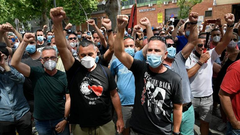
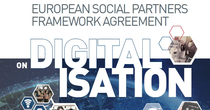 A framework agreement on digitalisation was signed in Brussels on 22 June 2020 between the European Trade Union Confederation (ETUC) and the three employers' confederations BusinessEurope, CEEP and SMEunited. It aims to support the successful digital transformation of Europe's economy and to manage its implications on labour markets, the world of work and society at large, in a socially responsible manner.
A framework agreement on digitalisation was signed in Brussels on 22 June 2020 between the European Trade Union Confederation (ETUC) and the three employers' confederations BusinessEurope, CEEP and SMEunited. It aims to support the successful digital transformation of Europe's economy and to manage its implications on labour markets, the world of work and society at large, in a socially responsible manner.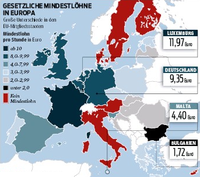
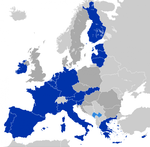 Since 10 July 2020, Croatia and Bulgaria have been official candidates for the introduction of the euro and are now part of the European Union's exchange rate mechanism II. Their currencies have been pegged to the euro since that date and can only fluctuate within a ±15% band around the central rate. Two years of participation in ERM II is a prerequisite for adopting the euro. The Croatian Kuna was pegged to the euro in 1994 and has been very stable since then. The Bulgarian lev has been pegged to the German mark or euro since 1997. For both countries the two-year waiting period is therefore only a formality. Lithuania was the last to adopt the euro at the beginning of 2015 (see
Since 10 July 2020, Croatia and Bulgaria have been official candidates for the introduction of the euro and are now part of the European Union's exchange rate mechanism II. Their currencies have been pegged to the euro since that date and can only fluctuate within a ±15% band around the central rate. Two years of participation in ERM II is a prerequisite for adopting the euro. The Croatian Kuna was pegged to the euro in 1994 and has been very stable since then. The Bulgarian lev has been pegged to the German mark or euro since 1997. For both countries the two-year waiting period is therefore only a formality. Lithuania was the last to adopt the euro at the beginning of 2015 (see 
 The importance of face-to-face meetings
The importance of face-to-face meetings

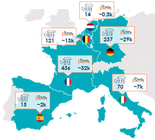

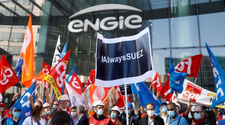
 On 13 and 14 August 2020, general employee assemblies were held at the direct bank N26 in Berlin for the purpose of appointing election committees. These are responsible for organising the first works council elections at the bank, which was founded in 2013. The Board of Management sought to prevent the meetings by means of legal injunctions, on grounds of the coronavirus risk, but was unsuccessful.
On 13 and 14 August 2020, general employee assemblies were held at the direct bank N26 in Berlin for the purpose of appointing election committees. These are responsible for organising the first works council elections at the bank, which was founded in 2013. The Board of Management sought to prevent the meetings by means of legal injunctions, on grounds of the coronavirus risk, but was unsuccessful.


 On 26 March 2020, the Munich Higher Regional Court referred three status proceedings concerning the incorrect composition of Supervisory Boards back to the Munich district Court. In June and July 2018, a small shareholder was unsuccessful in his claims against the media group ProSiebenSat.1 Media SE, the car rental company Sixt SE and the IT system house Cancom SE. The issue at stake was whether the rights to supervisory board co-determination can still be claimed subsequent to an SE conversion.
On 26 March 2020, the Munich Higher Regional Court referred three status proceedings concerning the incorrect composition of Supervisory Boards back to the Munich district Court. In June and July 2018, a small shareholder was unsuccessful in his claims against the media group ProSiebenSat.1 Media SE, the car rental company Sixt SE and the IT system house Cancom SE. The issue at stake was whether the rights to supervisory board co-determination can still be claimed subsequent to an SE conversion.




 Since 13 July 2020, Pepperl+Fuchs has become a European Company (SE). The Mannheim-based family-owned business produces electronic components for industry with 6,300 employees worldwide. The conversion to an SE was a matter of extreme urgency, since with 1,874 employees, Germany was not far from the 2,000 threshold for the establishment of a full-parity based supervisory board. This meant that the one-third employee participation on the supervisory board could be frozen on a permanent basis. Pepperl+Fuchs is the second company in which no SE agreement with the Special Negotiating Body has been concluded. The first case was RKW in Frankenthal (see
Since 13 July 2020, Pepperl+Fuchs has become a European Company (SE). The Mannheim-based family-owned business produces electronic components for industry with 6,300 employees worldwide. The conversion to an SE was a matter of extreme urgency, since with 1,874 employees, Germany was not far from the 2,000 threshold for the establishment of a full-parity based supervisory board. This meant that the one-third employee participation on the supervisory board could be frozen on a permanent basis. Pepperl+Fuchs is the second company in which no SE agreement with the Special Negotiating Body has been concluded. The first case was RKW in Frankenthal (see 


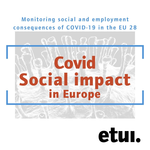
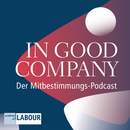
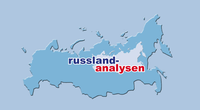

 New magazine on European labour issues
New magazine on European labour issues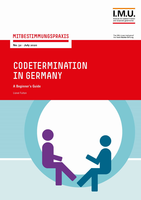
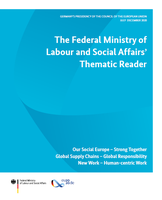

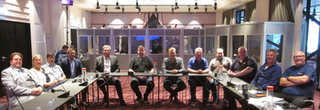


 From 20 to 23 October 2020, our annual introductory seminar for members (including future members) of European Works Councils, SE Works Councils and Special Negotiating Bodies will take place in Montabaur. The castle is located near the high-speed railway station halfway between Frankfurt-am-Main and Cologne. Several seminar modules will be offered for beginners and advanced participants.
From 20 to 23 October 2020, our annual introductory seminar for members (including future members) of European Works Councils, SE Works Councils and Special Negotiating Bodies will take place in Montabaur. The castle is located near the high-speed railway station halfway between Frankfurt-am-Main and Cologne. Several seminar modules will be offered for beginners and advanced participants. As every year, our annual conference is being held on 25 and 26 January 2021. To start with, the latest developments in the EWC and SE landscape will be presented together with recent court rulings. The agenda also includes case studies from various companies. One of the main topics will be the proper handling of confidential information that the EWC receives - or does not receive (see
As every year, our annual conference is being held on 25 and 26 January 2021. To start with, the latest developments in the EWC and SE landscape will be presented together with recent court rulings. The agenda also includes case studies from various companies. One of the main topics will be the proper handling of confidential information that the EWC receives - or does not receive (see  From 14 to 16 April 2021 we are planning a seminar in Budapest, which is primarily aimed at works council members in companies with sites in Hungary. What is the current situation in a country with full employment and large wage increases? What rights do works councils and trade unions have? How does the representation of employee interests function in the workplace? Experts and experienced participants from Hungary will report on these questions. For example, the strong interdependence of the automotive industry led to production interruptions in Germany in January 2019 because of a strike in Hungary (see
From 14 to 16 April 2021 we are planning a seminar in Budapest, which is primarily aimed at works council members in companies with sites in Hungary. What is the current situation in a country with full employment and large wage increases? What rights do works councils and trade unions have? How does the representation of employee interests function in the workplace? Experts and experienced participants from Hungary will report on these questions. For example, the strong interdependence of the automotive industry led to production interruptions in Germany in January 2019 because of a strike in Hungary (see